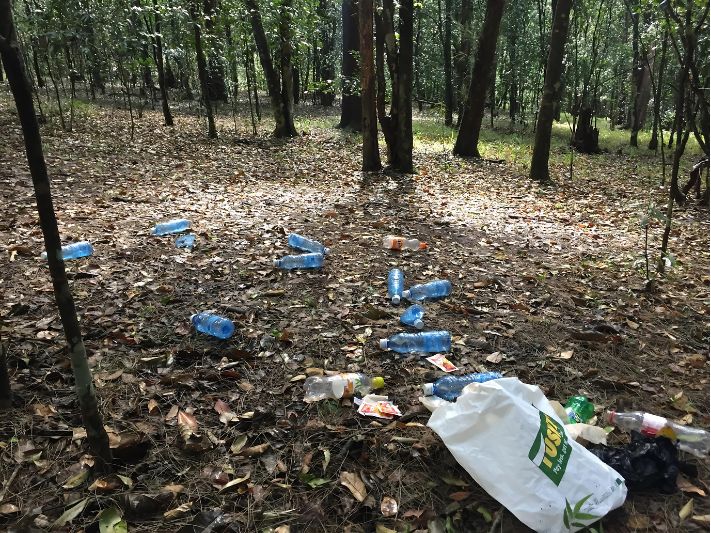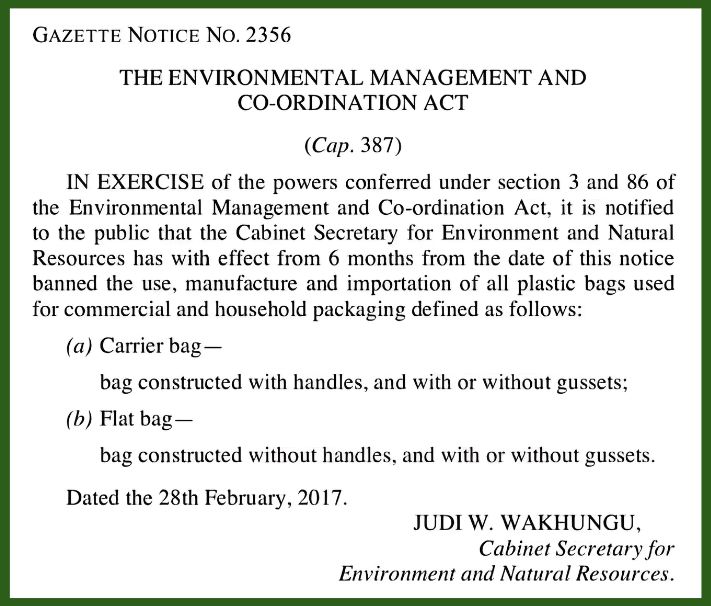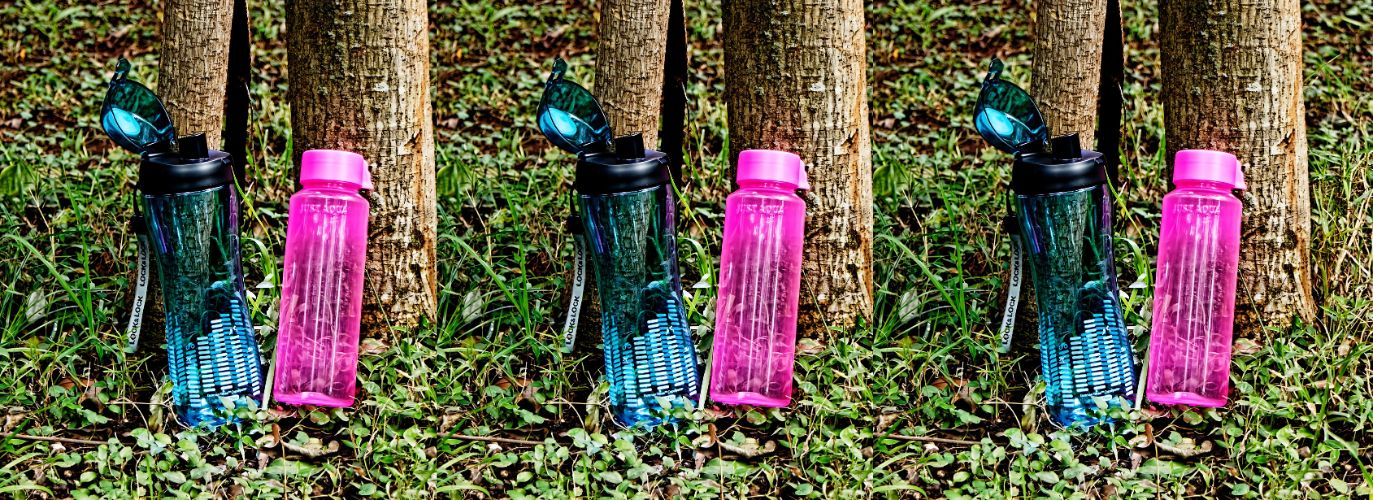
After a student picnic
A total ban on super-market type plastic bags has been introduced by Kenya’s Cabinet Secretary for the Environment, Dr. Judi Wakhungu, just weeks after FKF posted this shame-the-litterer post on Facebook. Nearly 80,000 Kenyans were reached and were angry.
Targeting the increasing number of university students visiting the forest during a university strike, the FKF Facebook post set a tongue-in-cheek pop quiz for the dozen or so visitors who off-track in a wildlife area not far from the nest of the recovering crowned eagle family.
“Prof. Wangari Maathai invites you to her house. She offers you mandazis and water during the visit. You enjoy yourselves, and when you go you throw the empty bottles and other rubbish on her livingroom floor.
Is this behaviour evidence of: (a) rudeness; (b) lack of respect; (c) ignorance; or (d) all of the above?”

The response was amazing and encouraging, with hundreds of angry comments and shares by a host of environmentally-aware Kenyans, answering (d) and demanding that their forest be treated with the respect that their Nobel Laureate would have expected.
Clearly, the Cabinet Secretary was listening. Here’s the Kenya Gazette notice of the ban.
Some Facebook commenters made the valid point that plastics are important and useful in our contemporary lives. Sustainable ‘cradle-to-grave’ management of materials production is a perennial concern of environmental agencies worldwide.
But the fact remains that with current careless environmental policy, the weight of plastics in the ocean will outweigh the weight of fish by 2050. And already, marine food chains are contaminated by the micro-plastic particles than emanate from the non-biodegradable physical breakdown of things like supermarket bags.
More countries must urgently follow the lead of Kenya and Rwanda and other in banning plastics before we all choke on our own refuse.


